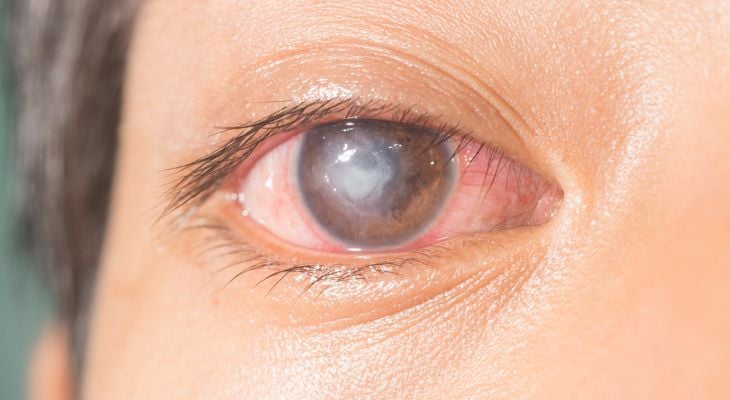
The cornea is present as a clear tissue that is located at the front of the eye. A corneal ulcer occurs when there is a sore in the layer of the cornea. Symptoms of this include redness, drainage, visual disturbances, sensitivity to light, itching and discomfort.
Causes and Effects of Corneal Ulcers
The most common cause of a corneal ulcer is infection. This can occur following damage to the eye. Other possible causes include fungi, eye dryness, a scratch in the eye, an inflammatory disorder, allergic eye disorders, and viruses.
Contact lens wearers are especially prone to corneal ulcers, especially if they wear their contacts while sleeping or while swimming.
Changes in vision may take place after a corneal ulcer has healed. It can also cause long term damage to the vision and even a loss of the eye itself. In some cases a corneal transplant may even be necessary. This is why it is important to seek treatment as soon as possible after noticing any symptoms.
Treatment of Corneal Ulcers
After examination of the eye, the eye care professional will determine what type of treatment is needed. If the corneal ulcer was caused by bacteria the doctor will likely prescribe a topical antibiotic for the eye. Culture of the eye drainage may be taken for further examination. If the doctor suspects a fungal infection topical anti-fungal medication may be needed. If the corneal ulcer is severe, oral agents may also be prescribed.
Prevention of Corneal Ulcers
The best way to avoid suffering from a corneal ulcer is protection of the eye. When doing any type of work or activity that would put yourself at risk for damage to the eye you should wear some type of mask, safety glasses, or goggles. If you are prone to dry eyes you can administer lubricating eye drops as needed. Contact lens wearers need to take proper care of the lenses in cleaning them and storing them. Contact lenses should never be worn while sleeping or swimming. Most importantly, proper hand washing is a must to avoid transmitting bacteria to the eye. This is the first line of defense in protecting your health.
